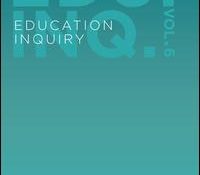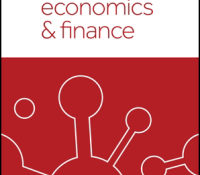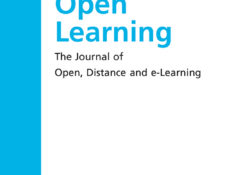tandfonline.com har udgivet en rapport under søgningen “Teacher Education Mathematics”: Who defines innovation in education? Participatory action research and organisational learning Link til kilde
Like this:
Like Loading...

tandfonline.com har udgivet en rapport under søgningen “Teacher Education Mathematics”: ABSTRACT ABSTRACT As demonstrated by Indigenous and rural scholars, participatory research approaches can facilitate capacity building, promote data accessibility, and accomplish community goals within complex hydrosocial systems. To demonstrate challenges and opportunities for participatory research, we describe hydrosocial territories in a mining-impact region in northern Idaho. We then compare two community-university partnerships in the study region, which included Tribal and non-Tribal rural communities. We find that the Participatory Action Research and Indigenous Research Methodologies frameworks provide a robust set of practices and methods for conducting more equitable and inclusive research. Further, participatory research approaches in research involving mining-impacted hydrosocial systems should: (1) build from established programs, goals, and practices; (2) identify respectful levels of partnership engagement, and (3) recognize partnership… Continue Reading →
Like this:
Like Loading...
tandfonline.com har udgivet en rapport under søgningen “Teacher Education Mathematics”: ABSTRACT ABSTRACT A challenge facing the Arctic region is the disengagement of both education and work among its youth. Only by supporting young people who are struggling with mental and physical health challenges can we begin to address this societal challenge. Education, mental health and social inclusion are prominent factors for future employment, income and independent living for young people. The aim of this study was to describe and understand the experiences of good conditions for health and learning in schools in the Arctic region. The 5-D appreciative inquiry method was used to explore 47 students’ and professionals’ experiences and future visions of their school. A phenomenological analysis resulted in three themes: “Standing as one”, “Having an apple a day”,… Continue Reading →
Like this:
Like Loading...
tandfonline.com har udgivet en rapport under søgningen “Teacher Education Mathematics”: Abstract Abstract Drawing from the theories of Participatory Systems Mapping (PSM) this study presents an approach to analysing the business sustainability of entrepreneurial dairy ventures in India. The article begins with a general introduction to the small and medium scale dairy ventures in rural India, highlighting the prominent issues and challenges faced by the stakeholders. The second part demonstrates the use of the PSM framework in developing the Stock and flow diagram (SFD). Further, data from a local milk dairy is collected, and simulations are carried out between 2017–2025 using Vensim®. The outputs are analysed, and inferences are made. This study is expected to enable the policy makers towards the development of sustainable strategies for dairy businesses in general and… Continue Reading →
Like this:
Like Loading...
eric.ed.gov har udgivet: In this paper we introduce the term “task science” to encompass the range of activities involved in designing tasks for school mathematics. We argue that task science is enriched by the participation of teachers, but more particularly that participating in task science is a powerful form of professional learning. We describe the role and design of task science in the reSolve: Maths by Inquiry project, and give examples of how teachers’ involvement in each phase of the process was both critical in developing the resources and promoted rich professional learning. Link til kilde
Like this:
Like Loading...

tandfonline.com har udgivet en rapport under søgningen “Teacher Education Mathematics”: ABSTRACT ABSTRACT Globalisation, migration and super diversity have urged teachers to cultivate their intercultural competence so as to work more successfully in their culturally diverse schools. Previous literature argues that teacher professional development for building intercultural competence plays a pivotal role in improving the intercultural school. For teacher professional development programmes to contribute to the improvement of the intercultural school, we should pay attention to their theoretical framework, content, and format. However, there is a shortage of literature and research that engages in in-depth descriptions of specific teacher professional development courses with an intercultural orientation. In order to bridge this gap, in this paper we critically discuss on a participatory course on stereotypes that we have developed and implemented in… Continue Reading →
Like this:
Like Loading...
tandfonline.com har udgivet en rapport under søgningen “Teacher Education Mathematics”: ABSTRACT ABSTRACT Learning design approaches, such as those adopted by the Open University, provide a set of tools and resources for purposefully-designing modules with a focus on student experiences. However, many of the current learning design strategies have been situated within specific institutions in Europe and North America. This means that there are several issues worth considering around if and how established learning design approaches make sense in diverse institutional and cultural contexts. To critically assess the relevance and appropriateness of learning design strategies in new contexts, this article describes an in-depth participatory workshop with 34 education professionals from five African countries. Altogether, 10 suggestions for learning design practices were derived from the consensus of workshop participants, which provide a… Continue Reading →
Like this:
Like Loading...
tandfonline.com har udgivet en rapport under søgningen “Teacher Education Mathematics”: ABSTRACT ABSTRACT This article provides a conceptual discussion of ‘ownership’ in various forms of participatory research. The discussion is grounded in our experiences from three research projects in science education. We seek to understand how and why ownership may be distributed between teachers and researchers at different stages in the research process. Looking at our projects in retrospect, we see that ownership was differently distributed at the initial stages. Then ownership distribution followed a similar pathway, as teachers gained ownership of implementation, whereas researchers reclaimed ownership of analyzing and disseminating the work. Our discussion departs from the idea that ownership relates to both ‘risks’ and ‘benefits’ as well as to both ‘rights’ and ‘obligations’. Thereby, we can make visible some… Continue Reading →
Like this:
Like Loading...
eric.ed.gov har udgivet: The research presents a Residency Math teacher education program that has been developed in Israel in search of transforming initial teacher preparation on the Clinical-Participatory continuum. It is a “multi-phase” mixed-method research aiming to present the clinical and participatory dimensions of the TMR: the way in which they are reflected in the curriculum planning program, how Student Teachers (STs) in the program perceive the program’s clinical and participatory dimensions and the nature of the challenges that arise in the program. Tools include: Documents of the programs; observations of the practical school experiences; A closed clinical social-interactive Questionnaire and a semi-structured clinical participatory (CP) questionnaire. The findings reflect clinical-participatory concept in teacher education, both in the curricular and the socio-interactive aspects. The analysis of the clinical-participatory dimensions, including… Continue Reading →
Like this:
Like Loading...






